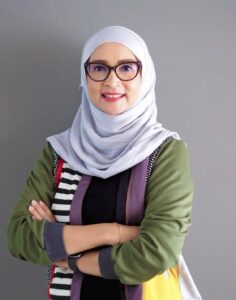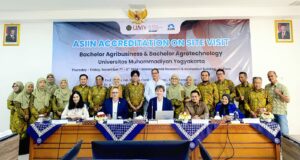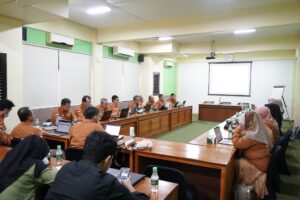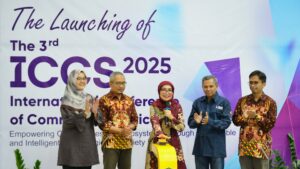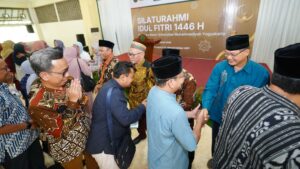The Government Science Masters Program of Universitas Muhammadiyah Yogyakarta (Jusuf Kalla School of Government) conducted research on the role of Non-Governmental Organizations (NGOs) in handling the COVID-19 pandemic in Indonesia, which continues to expand and develop rapidly. The research was headed by Prof. Dr. Achmad Nurmandi, M.Sc, who is the UMY Vice-Chancellor for International Affairs and Cooperation and, and is assisted by the research team of Dr. Zuly Qodir, M.Ag, Dr. dr. Arlina Dewi, M.Kes. and Riska Rahayu, S.IP.
In order to face major challenges to fight or stop the spread of COVID-19 in Indonesia, The government needs to be assisted by the private sector such as Non-Governmental Organizations (NGOs). For this reason, leading NGOs in Indonesia need to unite and be involved in COVID-19 disease management, such as through nationwide efforts to raise funds.
“NGOs here refers to religious organizations (Muhammadiyah; Nahdatul Ulama; and Tzu Chi Indonesia); online fundraising communities (Kitabisa.com; and Unicef Indonesia under International Unicef) and KawalCovid19 Online Community,” said Nurmandi.
The funds raised by NGOs and the Indonesian National Disaster Management Agency (BNPB) to overcome COVID-19 in Indonesia has amounted to Rp. 628.6 million. NGOs that have the highest distribution priority for funding are around 79.5% or Rp. 500 billion by Tzu Chi Indonesia. “That is based on the research that we (Masters of Postgraduate Government Sciences UMY) have done so far,” he added.
The fundraising by NGOs proved to be bountiful and the fundraisings must continue if the pandemic period has not ended. Meanwhile, the funds were used for the provision of medical equipment, emergency hospitals, food assistance and of course to help the people affected by COVID-19. “Besides that, the involvement of other NGOs include disinfectant spraying, regional quarantine, hand washing socialization, healthy lifestyle promotion, and Physical Distancing socialization aimed at all levels of society.” closed Nurmandi. (Hbb)

